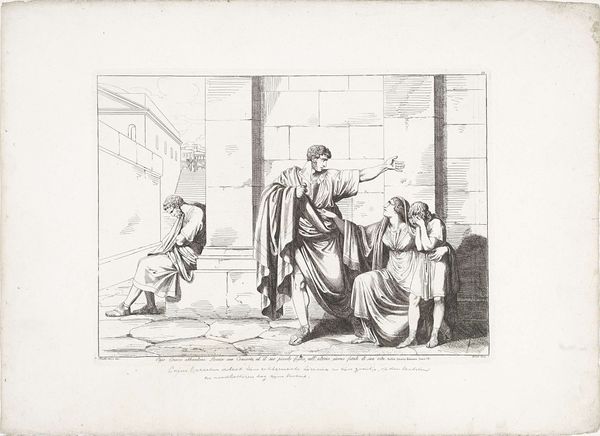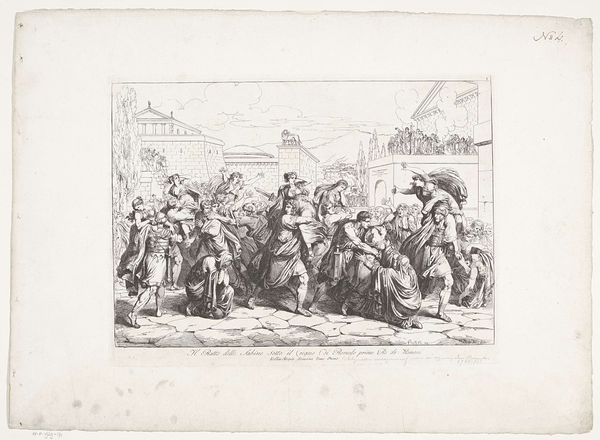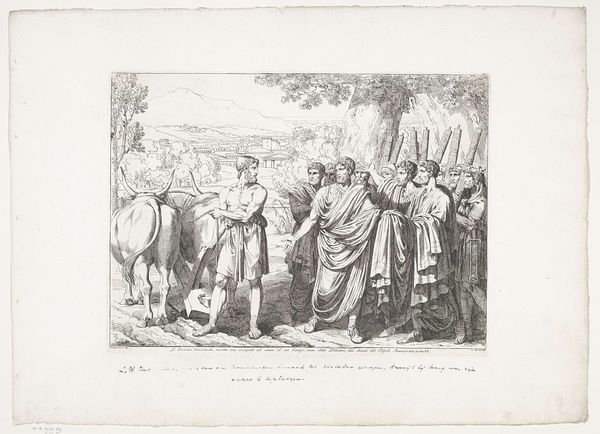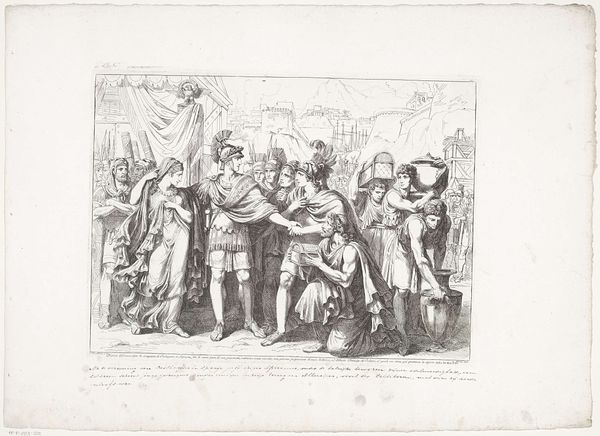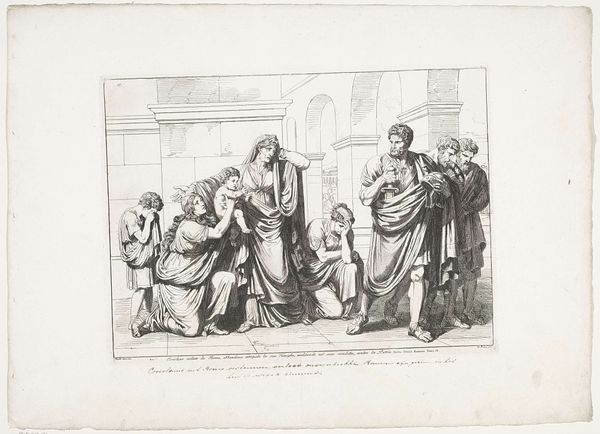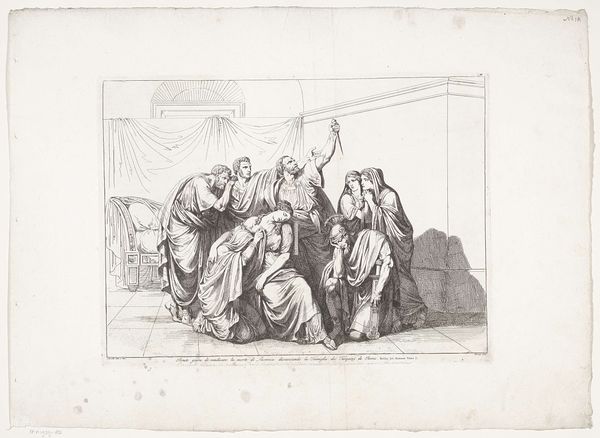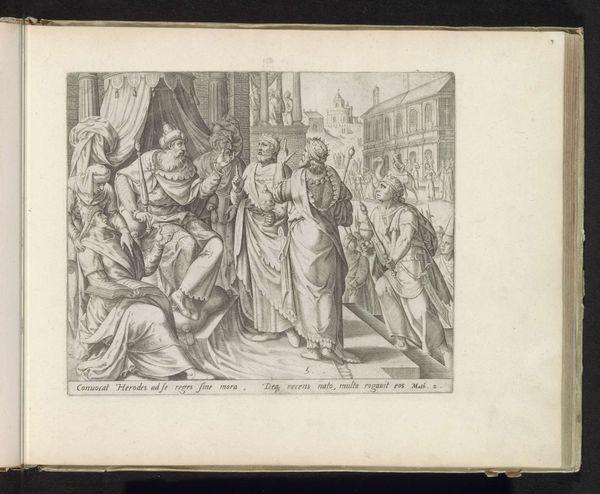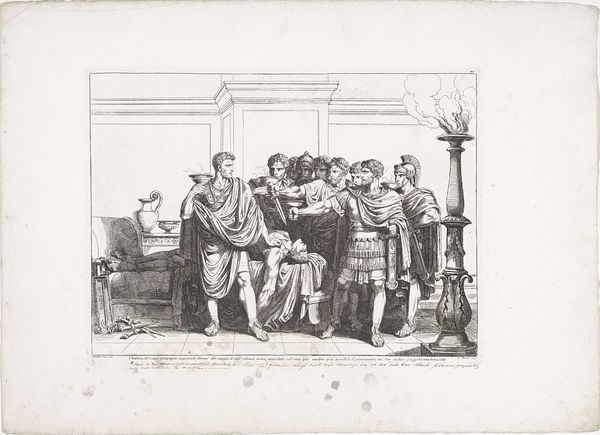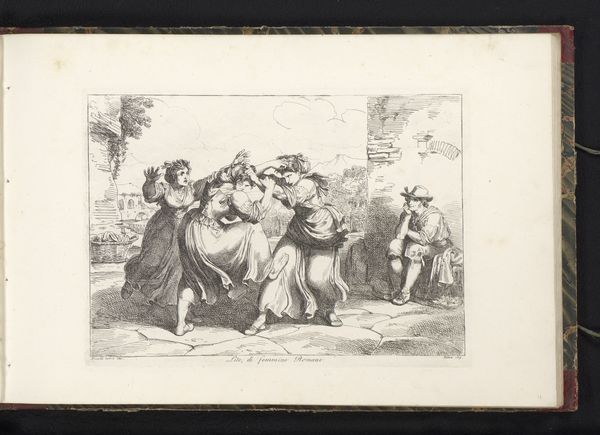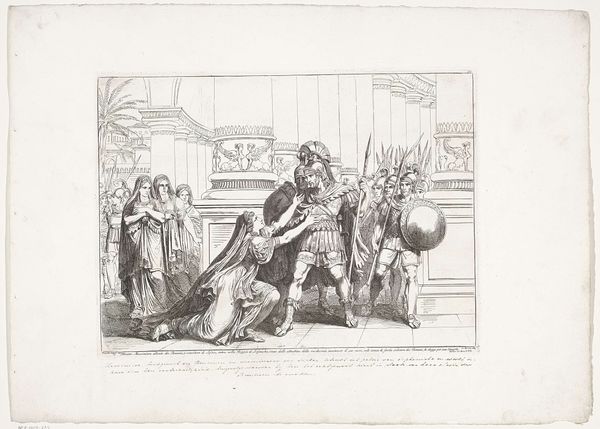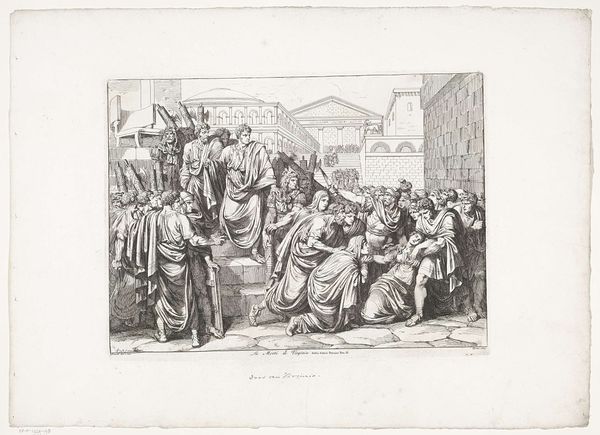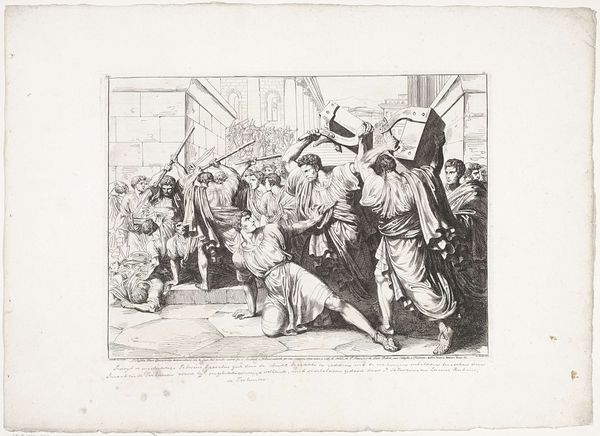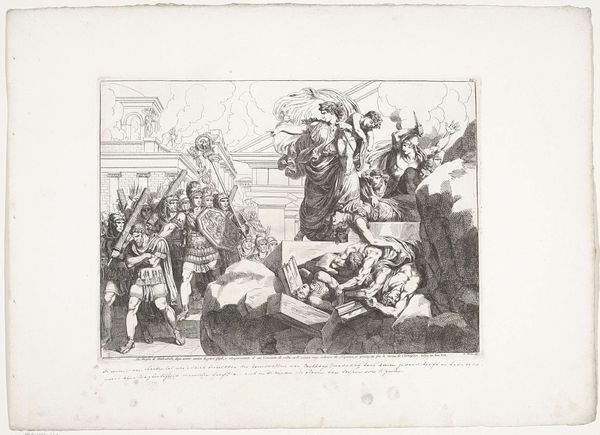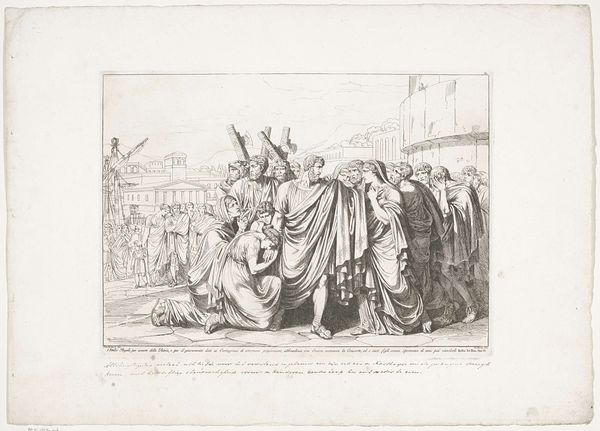
etching
#
neoclacissism
#
etching
#
ancient-mediterranean
#
group-portraits
#
history-painting
Dimensions: height 316 mm, width 42 mm
Copyright: Rijks Museum: Open Domain
Bartolomeo Pinelli created this print, "The Murder of Julius Caesar," using etching, a technique that allows for fine detail and strong contrasts. The composition is dominated by the central cluster of figures surrounding Caesar, whose posture immediately draws the eye. Note how Pinelli uses lines to create depth and movement, particularly in the drapery, which adds to the scene's chaotic energy. The architecture in the background frames the event, lending a sense of classical order disrupted by the violence. Here, the concept of power is challenged by the collective act of assassination. How does the artist portray the shift in power from a single ruler to a group? The semiotic reading of the daggers as symbols of betrayal and resistance destabilizes the established hierarchy. Consider the lines, the composition, and the space within the artwork, which function aesthetically and carry significant cultural and philosophical weight, reminding us that the meanings within art are always subject to ongoing dialogue and change.
Comments
No comments
Be the first to comment and join the conversation on the ultimate creative platform.
